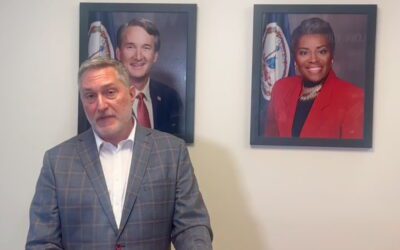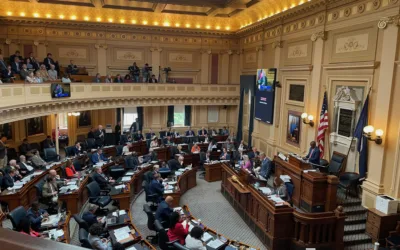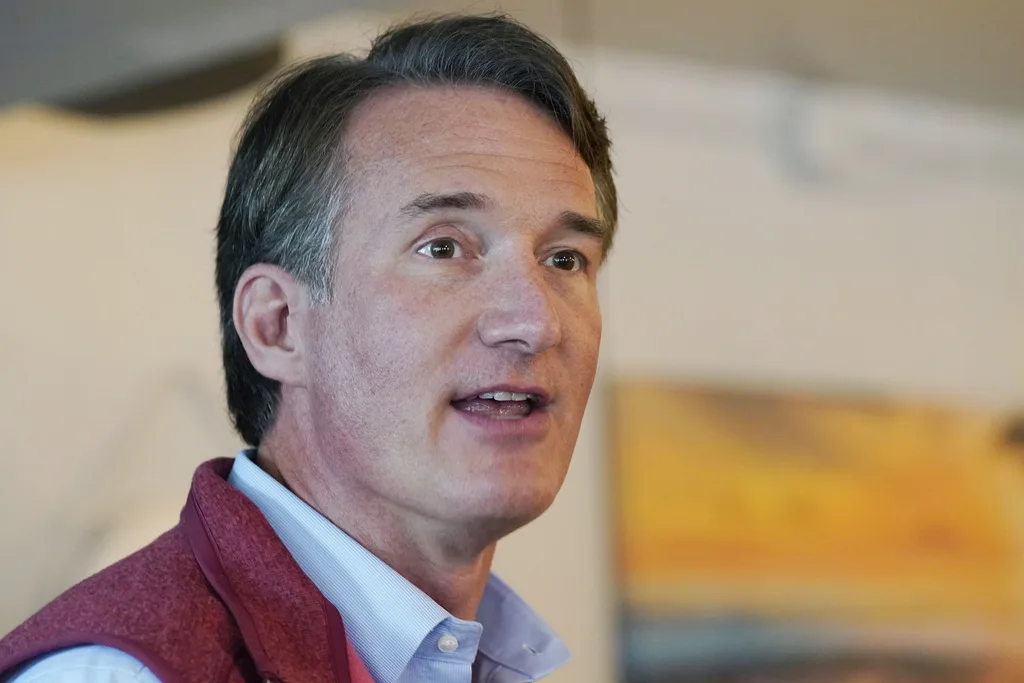
FILE - Virginia Republican gubernatorial candidate Glenn Youngkin talks with supporters during a rally in Culpeper, Va., Oct. 13, 2021. The Republican governor of Virginia vetoed two top Democratic legislative priorities on Thursday, March 28, 2024: bills that would have allowed the recreational retail sales of marijuana to begin next year and measures mandating a minimum wage increase. (AP Photo/Steve Helber, File)
Republican Gov. Glenn Youngkin last week vetoed legislation that would have raised the state’s minimum wage and established a retail marjuana market in the commonwealth.
Both Senate Bill (SB) 1 and House Bill (HB) 1 were introduced by Democrats and passed on party-line votes in the House of Delegates (51-49) and Virginia Senate (21-19) respectively, without any Republican support.
The legislation would have raised Virginia’s minimum wage from the current rate of $12 per hour to $13.50 in 2025 and to $15 in 2026. It continued the efforts Democrats began after they won full majority control of the legislature in 2019, when they began gradually raising the minimum wage from $7.25 per hour to the current $12 rate.
“The free market for salaries and wages works,” Youngkin’s veto statement said. “It operates dynamically, responding to the nuances of varying economic conditions and regional differences. This wage mandate imperils market freedom and economic competitiveness.”
Virginia Democrats took to social media to criticize the governor for this move.
“This veto makes Virginia a worse place for workers and struggling families,” Sen. Saddam Azlan Salim (D-Fairfax), said on Twitter. “If we want to help Virginians, we need to lift up the working class, not push for tax cuts for the wealthy.”
The legislation had strong community support. More than 400 Virginia bishops, religious leaders, and clergy signed a letter last month urging Youngkin to sign the legislation. A poll released in January by the Wason Center based out of Christopher Newport University found that 68% of Virginians support increasing the minimum wage to $15 per hour. Polls released last year from Virginia Commonwealth University also found that Virginians rank the rising cost of living as the most important issue facing state residents—something higher wages could have helped address.
The minimum wage bill would have increased wages for 611,000 workers in Virginia, most of whom work at least 35 hours a week.
Under Senate Bill 448 and House Bill 698, the state would have started taking applications for cultivating, processing, testing, and selling cannabis on Sept. 1. Sale of the drug would have begun on May 1, 2025, and the products would have been taxed at a rate of up to 11.6%—with 8% going to the state, 2.5% going to a local option tax, and 1.1% to K-12 education.
“Attempting to rectify the error of decriminalizing marijuana by establishing a safe and regulated marketplace is an unachievable goal,” Youngkin said in his veto statement. “The more prudent approach would be to revisit the issue of discrepancies in enforcement, not compounding the risks and endangering Virginians’ health and safety with greater market availability.”
Virginia Democrats blasted the governor for this move as well.
“Gov. Youngkin’s dismissive stance towards addressing Virginia’s cannabis sales dilemma is unacceptable,” Sen. Aaron Rouse (D-Virginia Beach), who introduced SB 448, said in a statement. “Public servants are obligated to tackle pressing issues, regardless of their origin or culpability. They cannot cherry-pick which problems to address.”
Del. Paul Krizek (D-Fairfax), who carried HB 698, said that by vetoing the legislation, Youngkin is allowing the illegal marijuana market in the state to continue to thrive.
“This veto squandered a vital opportunity to safeguard Virginians and will only exacerbate the proliferation of illicit products, posing greater risks to our schools and public safety,” Krizek said.
Both of these bills were top priorities of the Democratic-controlled General Assembly this legislative session. Youngkin’s vetoes came just one day after his top priority–a $2 billion development district that would have included a new arena meant to attract the NHL’s Washington Capitals and the NBA’s Washington Wizards to Alexandria–fell through.
The costly arena project imploded under the weight of strong community opposition, questions about its financing, and partisan combat.
Virginia’s General Assembly wrapped up its 60-day legislative session last month after approving a new, two-year state budget—a document Youngkin made clear he wasn’t happy with, calling it “backward” and saying it needs “a lot of work” before he’s willing to sign it.
Notably absent from the budget was language that would have helped Youngkin achieve his arena goal.
Plus, Ted Leonsis, the owner of the Washington Wizards and Washington Capitals, announced last week that he had reached a deal to keep both teams in DC.
Lawmakers will reconvene on April 17 to consider Youngkin’s initial amendments and vetoes. Both pieces of legislation are unlikely to be overridden by the General Assembly, however, because Democrats lack the two-thirds majorities needed to overcome Youngkin’s opposition.

Meta’s ‘teen safety’ tools are failing Virginia kids—and Gov. Glenn Youngkin isn’t helping
Parents and cybersecurity experts want Virginia lawmakers to hold companies like Meta accountable when their platforms fail to keep their pledges to...

‘Ticket to Ride’ and pickle sandwiches: The family life behind Abigail Spanberger’s campaign
Remember the viral victory speech with the toddler under the podium? That kid’s mom could be Virginia’s next governor. On Nov. 4, Democratic...
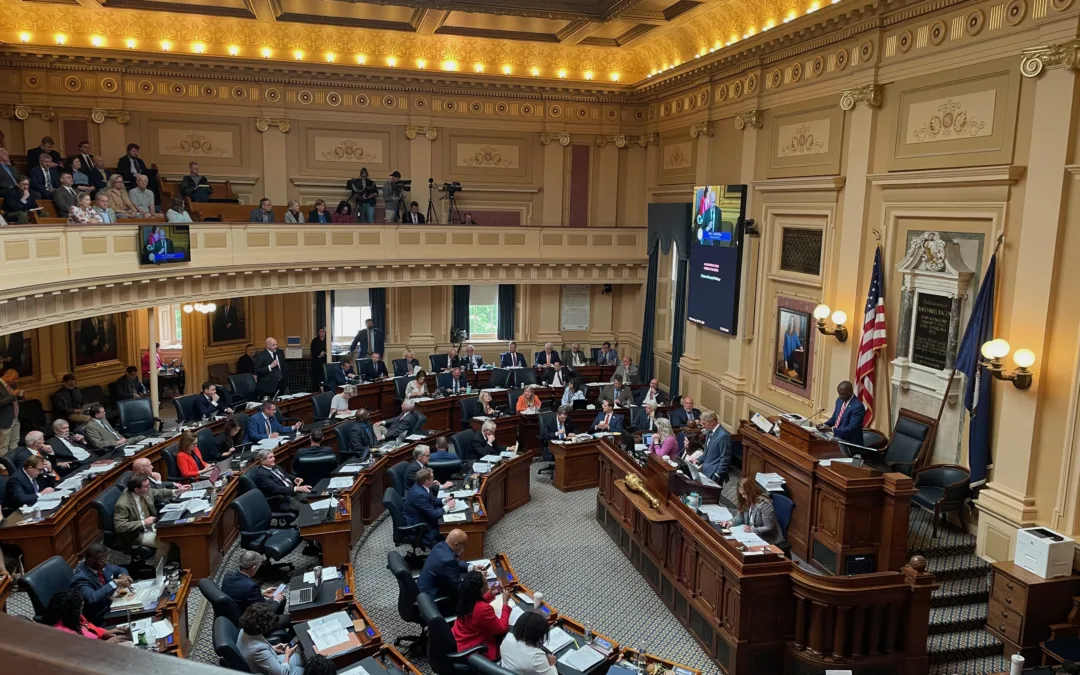
Virginia Dems enter redistricting fight in response to Trump’s power grab
Lawmakers are reportedly reconvening in Richmond on Monday with plans to redraw the state’s congressional maps to counter several Republican-led...

OPINION: Why Virginia families deserve paid leave
Ana walked into my pediatric clinic in Northern Virginia with her six-week-old daughter. As we weighed her baby for the fourth time this month, we...

Youngkin, who’s backed Trump’s agenda, sets aside $900 million as cushion for economic pain it could unleash
Virginia’s term-limited Republican governor remains steadfast in his support for Trump’s massive federal workforce cuts, intensive trade war, and...
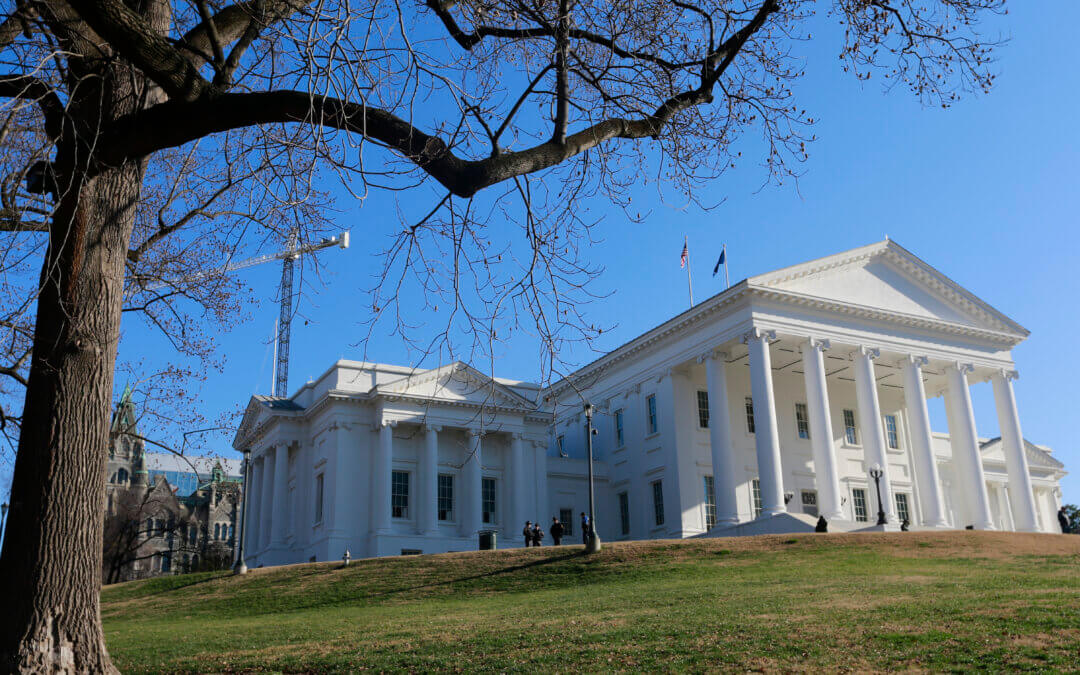
Opinion: The Youngkin-Sears administration doesn’t care about us
In March, the Youngkin-Sears administration vetoed commonsense bills that would allow hard-working Virginians to do more than just survive. They...


